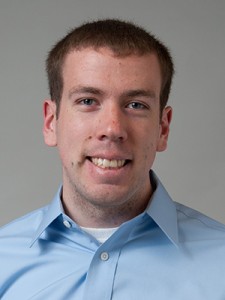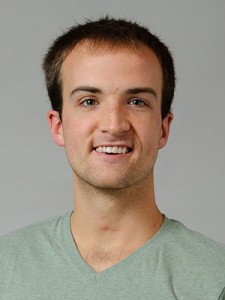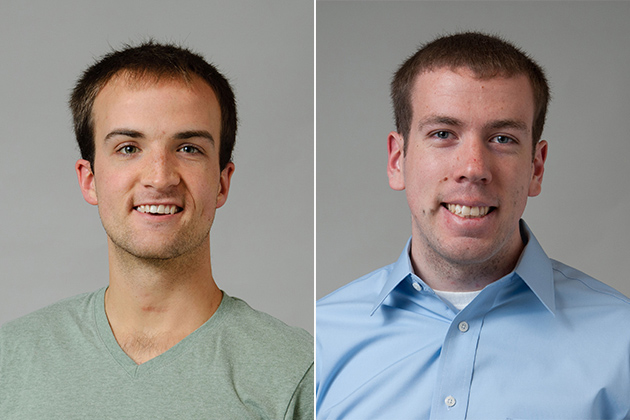This article is part of a series featuring some of this year’s outstanding graduating students, nominated by their academic school or college or another University program in which they participated. Check for additional profiles of students in the Class of 2013 on UConn Today from now through Commencement.


In August 2011, while most of their UConn friends were wrapping up their summer internships, Brian Osborn and Kyle Hope were just getting started, as they flew thousands of miles for the opportunity to study and do an internship in Germany for a year.
Osborn and Hope are both seniors in UConn’s Eurotech program, the five-year track offered by UConn that enables students to spend a year in Germany, including a semester of study and a six-month internship. Students graduating from the Eurotech program earn a dual degree in German and engineering.
“A lot of people ask me if it was worth it to stay another year at UConn,” says Osborn, a biomedical engineering major. “Professionally, I think studying abroad has enhanced my job prospects.”
Osborn interned at the Laboratory for Biomechanics and Implant Research in the Orthopedic University Hospital in Heidelberg, developing a process that could be used to study the effects of oxidation on knee implants. Specifically, he researched how natural bodily processes affect the erosion of polyethylene used in the knee implants.
“I was looking at the effects of bodily acids on polyethylene,” he says. “I also looked at how natural fatty acids produced by the body effected oxidation.”
Not only was he able to jumpstart a new research project, Osborn also helped German graduate students translate their papers into English so they could share their research findings with scholarly journals in the U.S. and around the world.
“Especially with engineering, there are a lot of companies that work between Germany and the United States,” he says. “And it’s always a valuable skill to have to know a second language.”
Hope, a chemical engineer, agrees that knowing a second language can be very useful in a world that depends on international industries.
“I really like learning a new language because you also learn a new culture,” he says. “Also, I think it’s always valuable to know a second language, because the world’s becoming smaller.”
Hope interned with the Fraunhofer Institute for Solar Energy Systems. His project focused on high-efficiency solar energy panels.
“I was researching why the adhesive between the glass and the solar side was degrading,” he says. “I was able to find some new behavior they had never seen before.”
In addition to their internships, both Osborn, at Heidelberg University, and Hope, at Albert-Ludwigs University in Freiburg, took a month-long intensive German language course and other courses that immersed them in German history and culture.
Osborn really enjoyed learning about political discourse in Germany.
“I took a German political science class,” he says. “It was interesting to learn about all the different political parties and all of the current debates.”
Hope is involved in a video project for the Benjamin A. Gilman International Scholarship that he received last year for Eurotech. He says the video will feature his experiences in Germany and aim to recruit more current and incoming freshman engineering students to join Eurotech.
“I think that learning German is a nice break from engineering,” he says. “I think it’s really important to know how to be open to other cultures.”
After graduation, both Hope and Osborn plan to work at engineering companies in the U.S., but would be eager to take jobs that involve international travel.
“I’ve been to a couple job interviews for after graduation,” says Osborn, “and the first thing they say is ‘Wow, you worked in Germany for a year!’”



